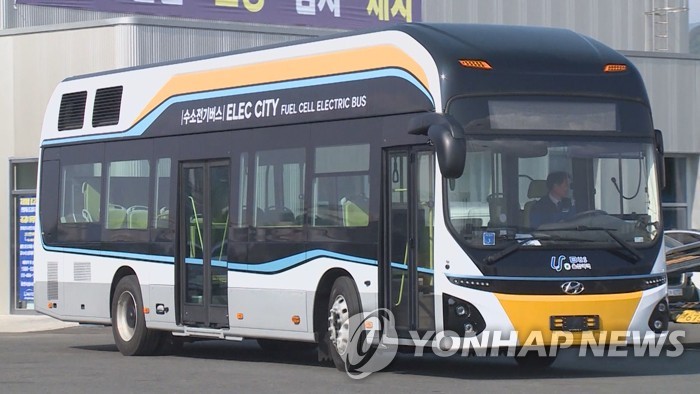
According to Yonhap News,
(SEOUL=Yonhap News) South Korea's industry ministry said Tuesday it plans to build 18 hydrogen production facilities by 2022 in line with the government's vision of utilizing the resource as the country's main source of energy for vehicles and other daily uses.
Construction for the first batch of three plants in Seoul, Changwon and Samcheok will begin this year for completion in 2020, with the number set to gradually increase, according to the Ministry of Trade, Industry and Energy.
The facilities will utilize liquefied natural gas to produce hydrogen, which in turn will be supplied to nearby hydrogen fuel cell bus stations or other charging centers, the ministry said.
South Korea has been moving to build infrastructure to expand the supply of hydrogen in line with its new energy policy.
Each facility will be capable of producing around 1,000 to 1,300 kilograms of hydrogen on a daily basis, which will be enough to supply up to 40 hydrogen-powered buses. The price of hydrogen will be determined later, the ministry added.
Under the hydrogen economy drive, the cumulative number of hydrogen-powered vehicles produced by 2040 in South Korea will reach 6.2 million units, hovering far above the 2,000 units produced until 2018, the ministry said earlier.
The policy especially focuses on promoting the use of hydrogen in the public transportation segment, with the number of hydrogen-powered taxis to reach 80,000 units in 2040, along with 40,000 buses and 30,000 trucks.
There are currently 35 hydrogen-powered buses running in South Korea, with the figure set to reach 2,000 units in 2022.
Along with the efforts to increase the number of production facilities, the ministry is also moving to build more hydrogen charging stations. The number of charging stations, which came to only 14 last year, will reach 310 in 2022 and a thousand by 2040.
colin@yna.co.kr
Copyrights Yonhap News. All Rights Reserved.
Reprint or redistribution without permission is prohibited.
Source: Yonhap News (May 28, 2019)










